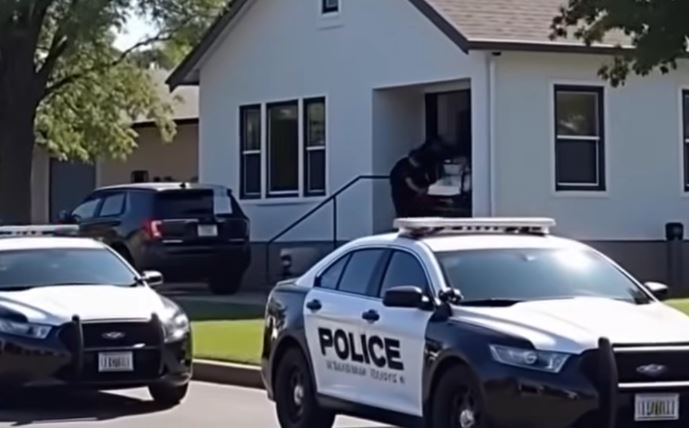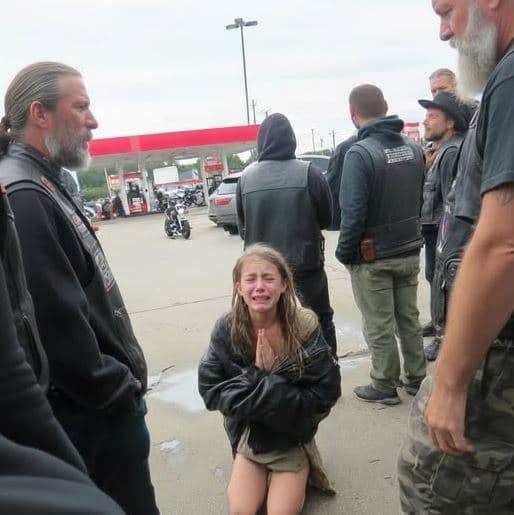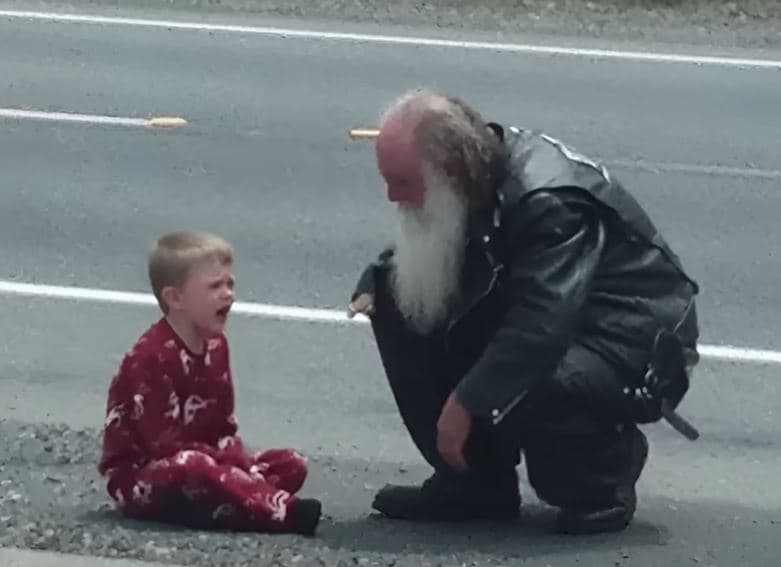My water broke on the way to my mother-in-law’s party. My husband got furious.
I remember the biting cold more vividly than anything else. It wasn’t just the temperature that numbed me to the bone, but the sh0ck, the sheer disbelief that ripped through me, leaving me hollowed out on the side of an icy highway. One moment, I was a woman on the precipice of motherhood, on the way to a celebratory dinner. The next, I was an abandoned casualty, left to the mercy of a blizzard, all because my husband deemed his mother’s birthday more important than the life growing inside me.
My name is Clara. And this is the story of how my world shattered into a million frozen pieces, only to be painstakingly rebuilt by an unlikely hero, and the strength I never knew I possessed.
It was December 15th, a date etched forever in my memory. The air had a sharp, metallic tang, hinting at the snow that had been falling steadily for hours. We were en route to his mother’s 60th birthday dinner, a grand affair Greg had planned meticulously for months. He’d made it clear, countless times, that this evening was paramount, a testament to his devotion. I, nine months pregnant, due any day, felt a growing sense of unease. My body had been sending me subtle signals all week, little tremors of anticipation.
We were barely twenty miles from the city, the winding, icy highway stretched out like a desolate ribbon ahead of us. Suddenly, a sharp, unfamiliar pain seized me. It wasn’t the dull ache I’d grown accustomed to; this was different, more intense, a primal wave that stole my breath. Then, a distinct gush. My water had broken.
“Greg,” I gasped, clutching my belly, “My water… it just broke.”
I expected panic, perhaps concern, a rush of adrenaline. What I got was a roar. He slammed on the brakes, the tires screeching a desperate protest against the ice. The car spun wildly, a terrifying dance of metal and momentum, before finally lurching to a stop, facing the wrong direction.
“You’ve got to be kidding me, Clara!” His voice was a guttural growl, laced with a venom I’d never heard directed at me. “Right now? You couldn’t hold it in for another hour?”
I stared at him, bewildered. “Greg, what are you saying? I can’t control when the baby comes! We need to get to the hospital!” My voice was thin, reedy, barely a whisper against the rising storm outside and the storm brewing inside the car.
He turned to me, his face contorted into a mask of pure fury. His eyes, usually a placid blue, were now chips of ice. “You did this on purpose, didn’t you? You knew how much tonight means to my mom! You always try to make everything about you!”
A cold dread seeped into my bones, a premonition far more chilling than the winter air. My husband, the man who had promised to cherish me, to be there for our child, was looking at me as if I were a saboteur, an enemy.
He muttered something under his breath, a string of expletives I couldn’t quite catch over the thumping of my own terrified heart. Then, he was out of the car. My breath hitched. He yanked open the trunk, and with a rough heave, my carefully packed hospital bag, filled with tiny onesies and hopes, landed in a pathetic heap in the snow.
“Out,” he barked, his voice devoid of any warmth, any recognition of the woman carrying his child.
“You can’t be serious,” I pleaded, tears stinging my eyes, instantly freezing on my cheeks. “It’s freezing, Greg! I’m in labor! We need to get to the hospital!”
He looked at me with an expression of utter disdain, a look that conveyed I was nothing more than an inconvenient obstacle to his plans. “My mother comes first. She raised me. You can take care of yourself.”
And then, he was gone.
The dull thud of the car door closing echoed in the vast, sudden silence. The roar of the engine faded into the distance. The red glow of his taillights, a beacon of betrayal, vanished into the swirling white curtain of the blizzard. Just like that.
I was alone.
The cold bit into my exposed skin, an immediate, brutal assault. Panic, a wild, untamed beast, swallowed me whole. A searing contraction ripped through me, doubling me over. I fell to my knees, the icy ground unforgiving. My mind screamed, Get up, Clara! You have to get up! For the baby!
I crawled, inch by agonizing inch, toward the flimsy guardrail at the side of the highway. Every contraction was a knife twisting deeper, stealing my strength, my will to move. The wind howled a mournful dirge, and the snow pelted my face, blinding me. I was losing hope, slipping into a terrifying stupor, the edges of my vision beginning to blur.
Just as my consciousness began to fray, just as I felt myself giving in to the overwhelming despair and the crushing cold, a beacon of light pierced through the storm. Headlights.They were in the distance, growing larger, slowing down. A voice, muffled by the wind, yet clear as a bell, shouted, “Ma’am! Hold on!”
A beat-up pickup truck, caked in snow and mud, pulled up beside me. The driver, a gruff-looking man with a thick beard and kind eyes, jumped out. His name was Arthur. He was a retired trucker, on his way home from visiting his grandkids.
“Oh, Lord have mercy!” he exclaimed, seeing my condition. He helped me into the passenger seat of his warm truck, carefully wrapping me in a worn but clean blanket he kept for emergencies.
“Don’t you worry, little lady. We’ll get you to a hospital.”
The warmth of the truck, the sheer kindness of a stranger, was overwhelming. Tears flowed freely now, not just from pain, but from relief, from the profound understanding that I wasn’t alone, not truly.
Arthur, a man who had seen his share of life’s rough edges, listened patiently as I, between contractions, recounted the unbelievable betrayal. He didn’t judge, he just nodded, his jaw tight. “Some men ain’t worth the mud on your boots, darlin’. But you’re strong. I can see it.”
The hospital was still a good forty-five minutes away through the worsening storm. My contractions were coming faster, stronger. Arthur, a man of surprising composure, kept me calm, talking me through each wave of pain, sharing stories of his own children’s births. He even had a thermos of hot tea, which I gratefully sipped.
As we finally pulled into the emergency room entrance, another intense contraction hit. “I think… I think the baby’s coming!” I cried.
Arthur, without hesitation, helped me out and practically carried me through the doors, shouting for help. Nurses rushed to my side, a whirlwind of white coats and urgent voices.
It was a long, arduous labor. But through it all, Arthur stayed. He sat in the waiting room, refusing to leave until he knew I was safe, until he knew the baby had arrived.
And then, he did. My son. A tiny, perfect little boy, with a shock of dark hair and the strongest cry I’d ever heard. I named him Leo, meaning “lion,” for the strength he’d shown just by fighting to come into this world.
Arthur was the first person to hold him after me. He looked at Leo with such tenderness, a stark contrast to the man who had abandoned us. “He’s a fighter, just like his mama,” he whispered, a tear tracking down his rugged cheek.
Greg, my husband, never showed up. Not that night, not the next day, not ever. The story of my abandonment made local news, a chilling tale of a pregnant woman left in a blizzard. Greg’s family, shocked and embarrassed, disowned him. His mother, after the initial fury of her ruined birthday, was heartbroken by her son’s callous actions. She later reached out to me, offering an apology and support I never expected.
My life with Leo began not with the joy I had envisioned, but with the stark reality of being a single mother, scarred by betrayal. Yet, it also began with a profound sense of gratitude for Arthur, who became a grandfather figure to Leo, and for the resilience I found within myself.
The divorce was quick, and Greg disappeared from our lives as suddenly as he had driven away that night. I never saw him again. But his absence was not a void; it was a space for new love, new strength, new possibilities.
Years passed. Leo grew into a bright, kind, and fiercely independent boy. Arthur remained a constant, loving presence. I found my footing, not just as a mother, but as a woman who had faced the worst and emerged stronger. I started a small business, a counseling service for single mothers, turning my trauma into a source of empathy and support for others.
Sometimes, on cold winter nights, I still think of that highway, that storm, that moment of utter despair. But the memory no longer holds me captive. It serves as a reminder of how far I’ve come, of the incredible strength of a mother’s love, and of the unexpected kindness of strangers that can mend a broken world.
And the question that lingers, the one I sometimes ask myself when I see Leo’s laughing face, is this: What truly defines a family? Is it blood, or is it the unwavering love and sacrifice that binds souls together, even in the most unforgiving storms?



